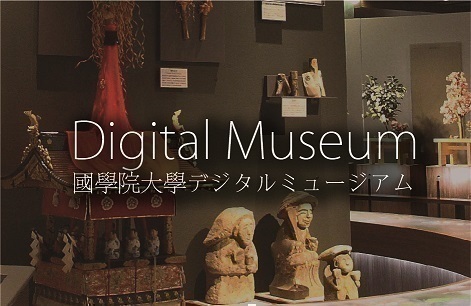- トップ
- Encyclopedia of Shinto
- Yoshikawa Shintō
Encyclopedia of Shinto
| Main Menu: | |
| Links: |
詳細表示 (Complete Article)
| カテゴリー1: | 8. Schools, Groups, and Personalities |
|---|---|
| カテゴリー2: | Medieval and Early Modern Schools |
| Title | Yoshikawa Shintō |
| Text | A lineage of Shinto formulated in the early Edo period by the Shinto scholar Yoshikawa Koretari (1616-1694). Koretari was originally a merchant from Nihonbashi in Edo, but after studying Shinto matters and waka poetry under Hagiwara Kaneyori (1590-1660), an influential exponent of Yoshida Shintō of the time, Koretari began a successful new career as a Shinto specialist. Thanks to Kaneyori's intervention—and also due to the fact that the head of the Yoshida House at the time was still a child—Koretari became the official successor to the Yoshida Shintō lineage. At the time, Yoshida rules prescribed that when the head of the Yoshida House had reached his majority, the transmission of the official lineage would be returned to him, but that did not happen in this case. Koretari gained the support of important officials of the Tokugawa government and of influential daimyō such as Tsugaru Nobumasa, and became well known in Edo as a Shinto specialist. Later, also thanks to the help of the shogun's assistant and lord of the Aizu domain Hoshina Masayuki (1611-1672), Koretari was appointed head of the Shinto section in the Magistrate of Temples and Shrines (Jisha Bugyō), and thus became an official of the Tokugawa government. Yamazaki Ansai (1618-1682) knew Koretari through Masayuki, and Koretari became enormously influential in Ansai's development of Suika Shintō. Koretari was succeeded by his son Tsugunaga, and Yoshikawa Shintō came to be known also as "Shinto of the fundamental principle" (Rigaku Shintō). During Tsugunaga's time the secret transmissions of Yoshikawa Shintō were systematized and the school developed its own Shintō doctrines. Tsugunaga devoted special efforts to the classification of the secret transmissions, which he organized in four levels from the most superficial (the first, ichii) to the most profound (the fourth, shijū ōhi). Secret documents classified in this way were transmitted in secret initiation rituals to the members of Yoshikawa Shintō according to each individual's stage of learning. A large part of the doctrines of Yoshikawa Shintō derive from Yoshida Shintō; the original contribution of this school is the utilization of Chinese Song period philosophical speculation (Sōgaku), which is said to have been adopted through the interaction with Hoshina Masayuki and Yamazaki Ansai. Particularly influential elements from Song philosophy occurring in Yoshikawa Shintō texts were the relation between universal principle and material force (riki), the role of the mind (shin), the great ultimate (taikyoku), and the status of deities (kijin). However, even though Koretari and Tsugunaga did have scholarly exchanges with Yamazaki Ansai, many doubts remain as to the extent of their knowledge and understanding of Chinese Song thought. In secret transmissions such as "Deities as guests" (Kijin raikyaku) and "The calming of life and death" (Shōji ochitsuki) one can see the attempt to ground a Shintō-like vision of life and death in the Song tradition of thought, but the treatment shows a lack of deep understanding of Chinese philosophy; ultimately, these Yoshikawa texts do not succeed in offering a clear and systematic view of life and death. Furthermore, Yoshikawa Shintō presented itself primarily as a political system for guiding the governance of the realm and the upholding of its political system, rather than as a set of rituals and ceremonies. For this reason, it stressed the moral basis of the relations of ruler and subject, and master and servant, and thus included elements of "bushidō-like" ethics. Among the various deities, Koretari gave particular importance to Kunitokotachi, using the philosophy of Zhu Xi to identify the deity with the "great ultimate" (taikyoku) of Song thought. He taught that all human beings host Kunitokotachi in their hearts, thus guaranteeing that gods and human beings are originally united. Koretari also acknowledged the value of rituals and ceremonies as methods of experiencing such identity of kami and humans. After Koretari and Tsugunaga, Yoshikawa Shinto showed little intellectual development, and did not play a major role in the history of Shintō thought, but the Yoshikawa house continued to keep its position as the head of the government agency in charge of Shintō matters (the Kugi Shintōkata of the Jisha Bugyō) until the end of the Tokugawa regime. See also Yoshikawa Koretari. -Yazaki Hiroyuki |




